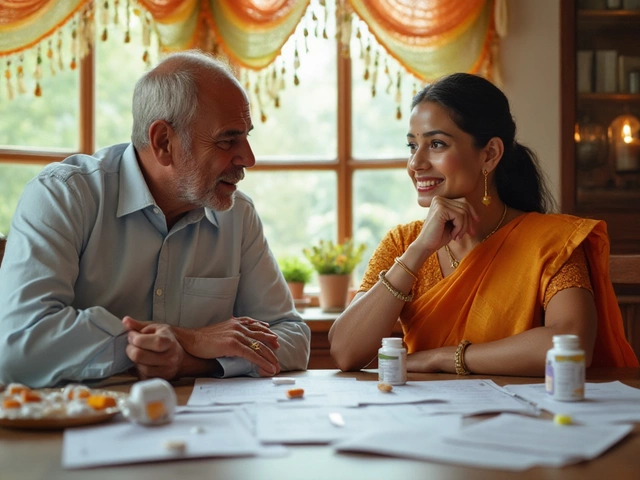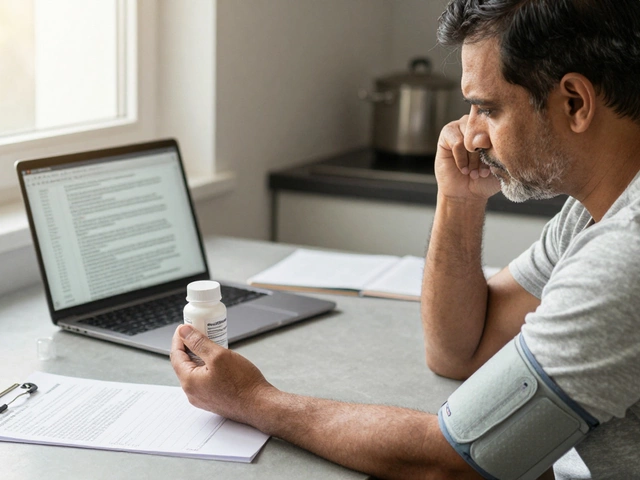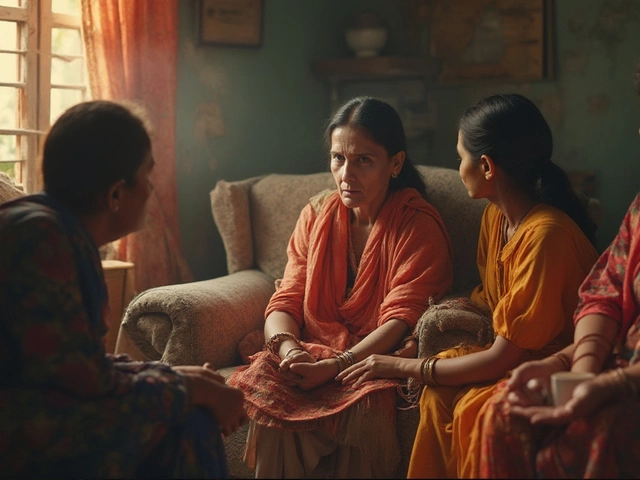Telemedicine: What You Need to Know for Safe Online Health Care
Ever wondered if you can trust a doctor you’ve never met in person? Telemedicine lets you talk to qualified physicians from your phone or laptop, saving travel time and cutting down wait lists. In India, the boom of digital health apps means you have plenty of options, but not all are created equal. Below we break down the basics, how to pick a reliable service, and what to watch out for when medicines are prescribed online.
How Telemedicine Works in India
When you open a telehealth app, you usually create a profile, share basic health info, and pick a specialty. A video, voice, or chat session then connects you with a doctor who reviews your symptoms, asks follow‑up questions, and may request lab reports or images. If needed, the doctor can issue an e‑prescription that you can fill at a nearby pharmacy or have delivered. The whole process often finishes in under 30 minutes.
Regulators like the National Digital Health Mission and the Telemedicine Practice Guidelines (2020) set rules for privacy, record‑keeping, and doctor qualifications. Look for services that mention these guidelines on their website – it’s a good sign they follow legal standards.
Spotting Safe Platforms and Avoiding Medication Traps
Not every online prescription is safe. Some apps let anyone with a medical degree sign up, but you might still get a prescription for a drug that’s not suitable for your condition or that has hidden toxic side effects. Here’s a quick checklist:
- Verified doctors: Check the provider’s registration number (MCI or NMC) and specialty.
- Clear drug info: The e‑prescription should list dosage, frequency, and warnings about interactions.
- Pharmacy partner transparency: Reputable platforms partner with certified pharmacies that follow the Drugs and Cosmetics Act.
- Data privacy: Look for SSL encryption and a privacy policy that explains how your health data is stored.
If a doctor rushes the consultation, refuses to see past records, or suggests a medication you’ve never heard of, pause and ask for clarification. You can also cross‑check the drug on the Ministry of Health’s portal for any reported toxicity reports.
Remember, telemedicine is great for routine check‑ups, follow‑up visits, and minor ailments like colds or skin rashes. For serious conditions—heart problems, severe infections, or any sign of poisoning—insist on an in‑person visit.
Lastly, keep a copy of your e‑prescription and any chat logs. If you experience side effects, you’ll have a record to show the pharmacist or a later‑stage doctor. This habit not only protects you but also helps researchers spot patterns of drug toxicity in the growing digital health space.
Telemedicine is changing how Indians access care, but safety still starts with an informed patient. Use the tips above, ask questions, and you’ll get the convenience of online visits without compromising on health.
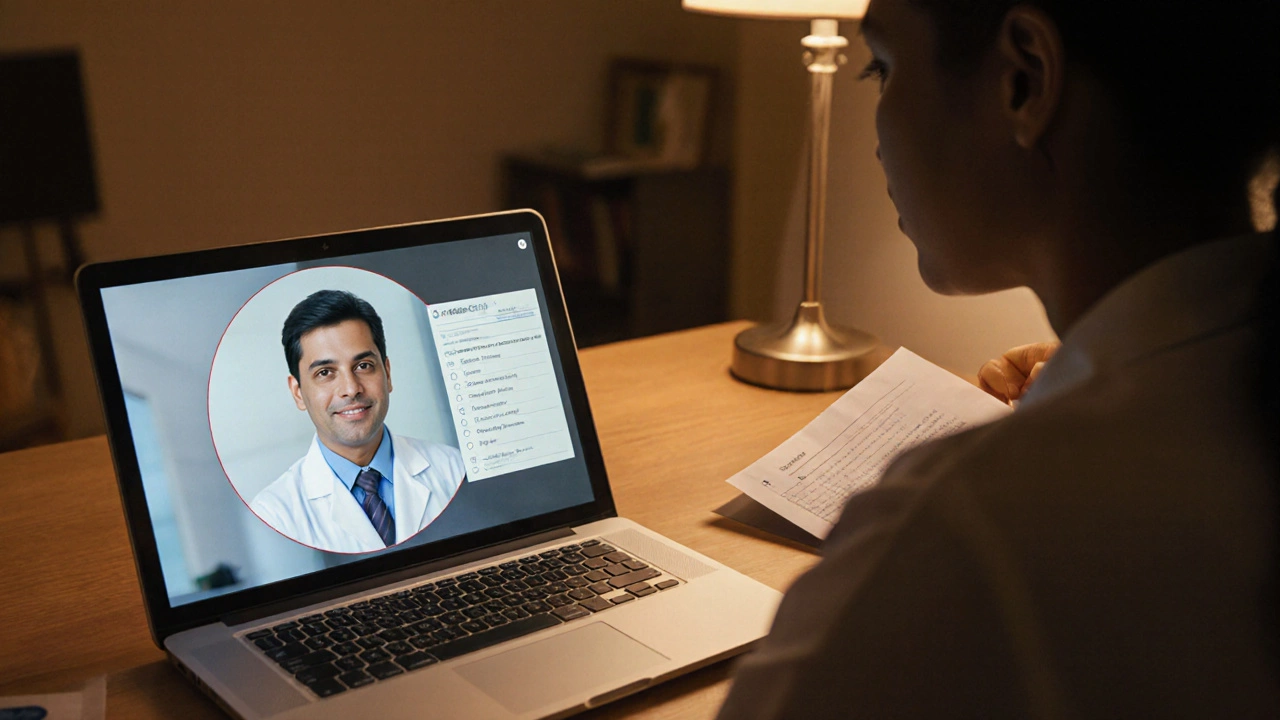
How to Get a Wegovy Prescription Online - Complete Guide
Learn how to safely obtain a Wegovy prescription online, understand legal rules, pick legit pharmacies, and avoid scams.
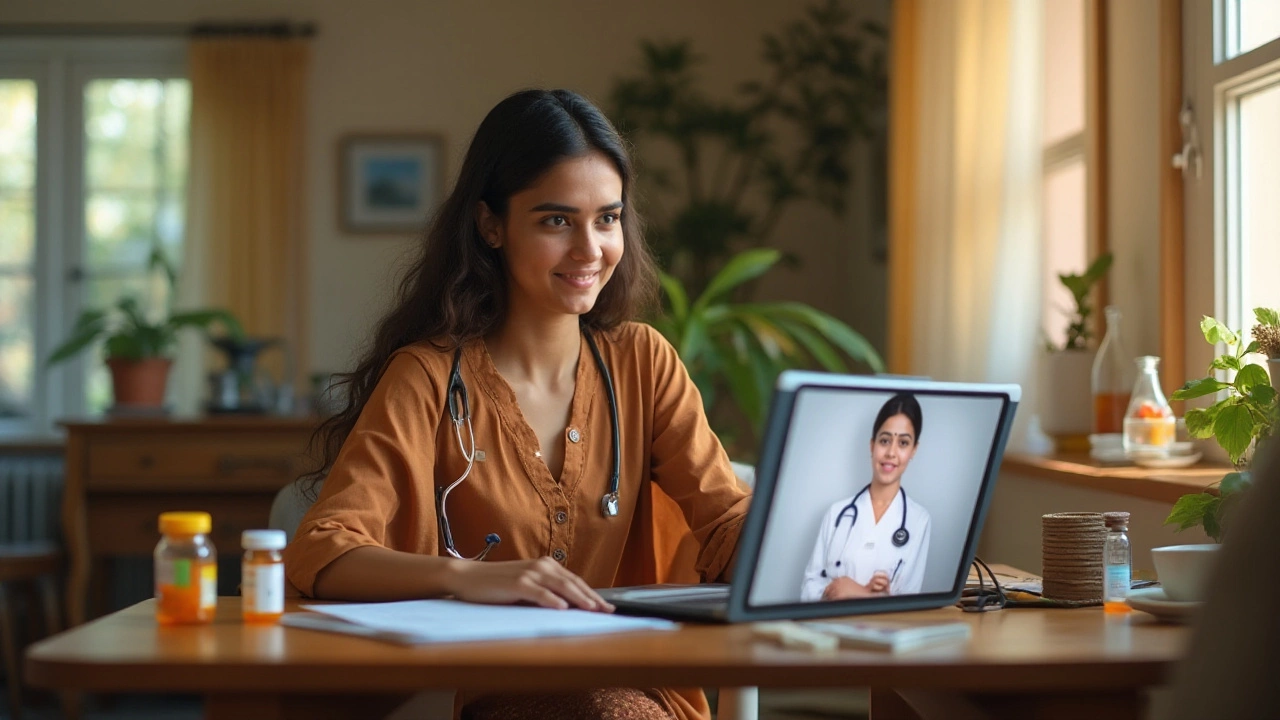
Navigating Online Prescription Services: What You Need to Know
In the digital age, accessing medication can be more convenient than ever, thanks to online pharmacies and telemedicine services. This article explores whether it's possible to obtain a prescription without visiting a doctor in person. It delves into the workings of online medical consultations, their benefits, potential risks, and legal aspects. Readers will gain insight into how these services operate and tips for choosing a reliable online pharmacy.

Best Mail-Order Pharmacies: Who's Leading the Pack?
Mar, 19 2025

What is the best vitamin to repair nerve damage?
Feb, 24 2026
